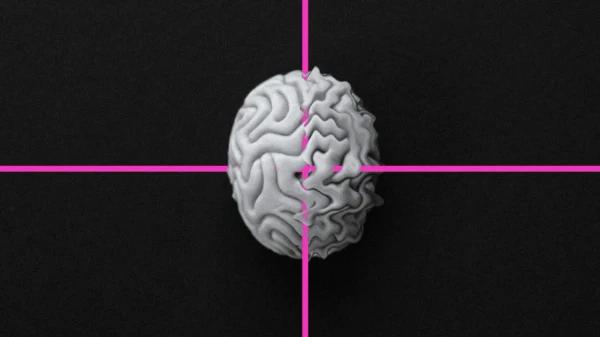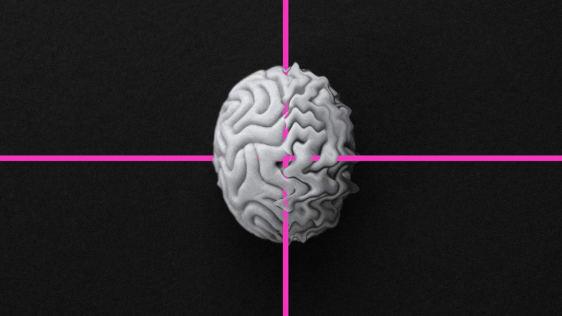These are the 4 boundaries your brain needs to feel less overwhelmed
Curated from: fastcompany.com
Ideas, facts & insights covering these topics:
9 ideas
·928 reads
12
Explore the World's Best Ideas
Join today and uncover 100+ curated journeys from 50+ topics. Unlock access to our mobile app with extensive features.
Reactive Work Style
Ever wonder where the day went? It’s not uncommon to reach the late afternoon and marvel at why you didn’t gain more traction on your to-do list. That’s because the workstyle most of us use is reactive.
Many of us are feeling overwhelmed, and remote working arrangements aren’t necessarily helping, because they increase the amount and forms of communication you must track. The challenge is our brain’s instinctual reaction to overwhelm.
22
166 reads
More Work Is Stressful, Biologically
We have a hangover from our ancestors that doesn’t really work in the modern world. Anytime your ‘ancient’ brain perceives that something is more than you can handle, it sees it as a threat and triggers the stress response. Stress today is social stress, but it still sets off the automatic response of fight or flight.
It’s possible to manage our thoughts so we’re not just reacting in panic mode all day long. Setting these boundaries will help you work in a more sustainable way.
24
112 reads
Attention Management
Part of your brain is always asking, “What’s wrong?” “How am I going to make it? “What’s next?” Self-inflicted stress is the frenzy and frazzles to get to the next item on the list.
To get anything done during the workday with focused attention, you need to tap into your working memory. The human brain is limited to three or four thought chunks for only a few seconds.
24
120 reads
The Working Memory Is Always Stressed
Unfortunately, interruptions blow up working memory. We have the rise of what’s called ‘attention deficit trait. It’s not ADHD, but it mimics the same symptoms. Your attention span shrinks, you have a hard time staying on task, you flit from one thing to the next, and you have more time urgency because you’re falling behind.
To regain your attention, calm your mind. Count backward from 100 to zero in your brain. Since we don’t do this every day, we have to pay attention to it. If your thoughts stray, just come back to the next number down the line. The exercise is relaxing and calming.
32
92 reads
Focus On Your Breath
Exercise is a good stress reducer because it brings your brain back to the centre. Or focus on your breath. It massively increases your attention.
Deliberative breathing shuts down the acceleration of the stress response. It’s strongest in the immediate few minutes after the button gets pushed.
We think because something’s in our head, we got to pay attention to it. We don’t. We can try to be thought-free, as hard as it sounds.
27
95 reads
Interruption Management
In order to have more attention, it’s important to set the terms of engagement with your devices.
Disruptions erode your impulse control, and interruptions make anything you do seem more difficult and aggravating than it is. Humans are allowed to set the rules on the devices.
The impulse control mechanism is located in a part of the executive attention function of the brain called effortful control. Interruptions shred it and make us self-distract and lose the ability to regulate impulsivity and stay on task. Managing interruptions, then, is key.
26
80 reads
Barking Management
Another boundary your brain needs is the ability to let things go in order to return to work. This is called “barking” management.
Does your dog bark hours, days, months, or years after another dog walks past your yard? He drops the event as soon as it’s over like it never happened. But that’s not what humans do. We keep barking. We hang on to the event, and that’s what causes our stress—but we don’t have to.
Hanging onto stress is rumination. We can play a big role in shutting down this ancient reflex by managing the thoughts in your brain.
29
83 reads
Thought Labelling
We’re very verbal creatures, and a lot of words are flowing through our brains. They attach themselves in a random way. They fuse with thoughts, feelings, emotions, and moods in our brain and come out in the form of a thought.
For example, if you have a confrontation with someone at work and your thoughts drive you to a conclusion that you can’t take it anymore, you’ll be worse off than you were because you’ve self-defined yourself as being in a bad state.
Labelling your thoughts as thoughts separates you from knee-jerk, emotion-word fusings that hold you hostage to false beliefs.
28
80 reads
Refueling Management
We are not hard drives with hair.
After two hours of time on task, the brain has to get off task to relieve strain and reboot.
The brain needs daily, weekend, and vacation resets. Robinson says productivity goes up after 10-minute breaks, 20-minute breaks, and dramatically after a vacation. Recreation and relaxation also allow you to put away whatever you’ve been thinking about over and over and recover. If you don’t, you’ll come back to work the next day with the stress still there.
31
100 reads
IDEAS CURATED BY
"You can fool all the people some of the time, and some of the people all the time, but you cannot fool all the people all the time. " ~ Abraham Lincoln
Cristian 's ideas are part of this journey:
Learn more about productivity with this collection
How to delegate tasks efficiently
How to use technology to your advantage
How to optimize your work environment
Related collections
Similar ideas
14 ideas
Hyperfocus: How to Work Less to Achieve More
Chris Bailey
2 ideas
4 Steps to Developing a Work Moderation Plan That Works For You
thriveglobal.com
7 ideas
How to Manage Feeling Overwhelmed with ADHD
psychcentral.com
Read & Learn
20x Faster
without
deepstash
with
deepstash
with
deepstash
Personalized microlearning
—
100+ Learning Journeys
—
Access to 200,000+ ideas
—
Access to the mobile app
—
Unlimited idea saving
—
—
Unlimited history
—
—
Unlimited listening to ideas
—
—
Downloading & offline access
—
—
Supercharge your mind with one idea per day
Enter your email and spend 1 minute every day to learn something new.
I agree to receive email updates









